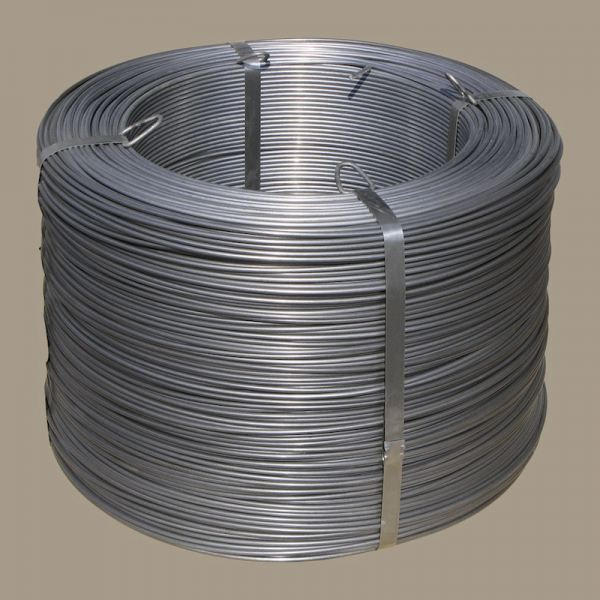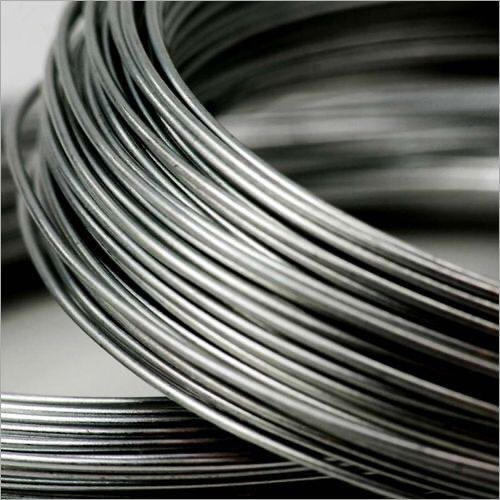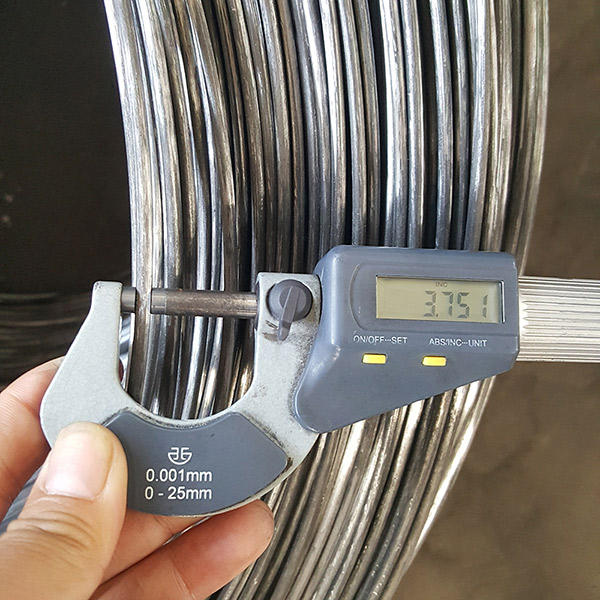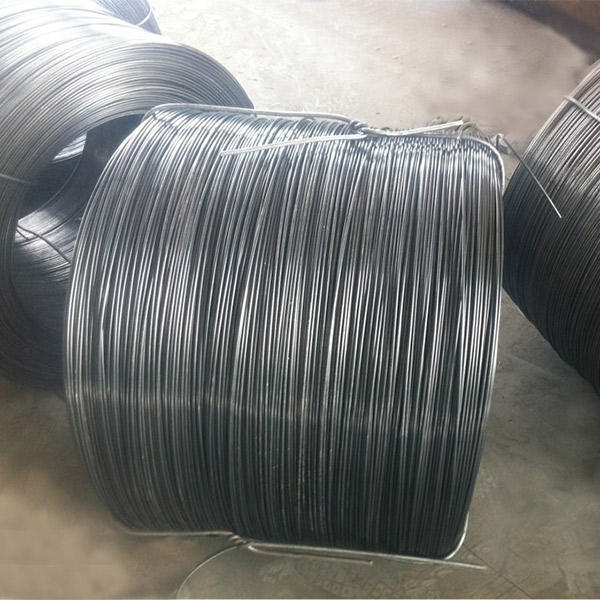Aug . 29, 2025 01:40 Back to list
Premium Welded Wire Mesh for Industry Factory - Durable & Strong
Precision Engineered Welded Wire Mesh for Industrial Applications
In the demanding landscape of modern industrial operations, the selection of robust, reliable, and high-performance materials is paramount. Among these, welded wire mesh for industry factory applications stands out as a fundamental component. Its versatility and structural integrity make it indispensable across a myriad of sectors, from heavy manufacturing and construction to specialized filtration and security. This comprehensive overview delves into the critical aspects of industrial welded wire mesh, offering insights into its manufacturing, technical specifications, application advantages, and the stringent quality standards that define its efficacy in the B2B sphere.
Understanding the intricacies of material science, fabrication techniques, and performance metrics is crucial for B2B decision-makers and engineering professionals seeking optimal solutions. Our focus here is to provide a detailed resource that supports informed procurement and strategic implementation, emphasizing the expertise, experience, authoritativeness, and trustworthiness essential for high-stakes industrial projects.
Current Industry Trends and Market Dynamics
The market for industrial welded wire mesh is experiencing dynamic shifts, driven by advancements in materials science, automation, and increasing demands for sustainability and operational efficiency. Key trends include:
- Increased Automation in Production: Modern welded wire mesh for industry factory production lines leverage advanced robotic welding and automated quality control systems, leading to higher precision, consistency, and reduced labor costs. This translates to more competitive pricing and superior product quality for end-users.
- Demand for Advanced Corrosion Resistance: Industries such as petrochemical, marine, and wastewater treatment are increasingly specifying meshes made from stainless steel (e.g., SS304, SS316) or those with advanced coatings (e.g., galvanized, PVC-coated) to combat harsh environmental conditions and extend service life.
- Sustainable Manufacturing Practices: A growing emphasis on environmentally responsible production methods, including energy-efficient processes and the use of recyclable materials, is influencing supplier selection among discerning welded wire mesh for industry manufacturers.
- Customization and Specialized Applications: The rise of niche industrial requirements necessitates highly customized mesh designs, varying in wire gauge, aperture size, material composition, and panel dimensions. This trend demands flexible and technologically adept welded wire mesh for industry suppliers.
- Digitalization in Supply Chain: Integration of digital tools for inventory management, order tracking, and predictive maintenance is streamlining the procurement process, enhancing transparency and efficiency for industrial buyers.
These trends underscore a market that values not only the functional performance of the mesh but also the efficiency, reliability, and innovative capacity of its providers.

Fig 1: Automated production line for precision welded wire mesh.
Manufacturing Process: From Raw Material to Finished Product
The production of high-quality industrial welded wire mesh is a meticulously controlled multi-stage process, beginning with carefully selected raw materials. Our base product, cold-drawn wire, forms the backbone of superior mesh construction, ensuring optimal tensile strength and ductility. The entire process adheres to stringent quality control protocols, often benchmarked against international standards like ISO 9001 and ASTM A740.
Key Stages in Welded Wire Mesh Production:
-
1. Raw Material Selection and Cold Drawing:
High-carbon or low-carbon steel rods are sourced, meeting specific metallurgical compositions. These rods undergo a cold drawing process, where they are pulled through a series of dies to reduce their diameter and increase their tensile strength and hardness. This process refines the grain structure and improves surface finish, producing the cold-drawn wire that is critical for durable mesh. Materials often include mild steel, stainless steel (e.g., AISI 304, 316), or galvanized steel, chosen for specific application environments.
-
2. Wire Straightening and Cutting:
The cold-drawn wire, typically supplied in coils, is fed into straightening machines. These machines remove any curvature, ensuring perfectly straight longitudinal (line) and transverse (cross) wires. The wires are then precisely cut to the required lengths, crucial for maintaining mesh uniformity and dimensional accuracy.
-
3. Automated Resistance Welding:
This is the core of welded wire mesh for industry factory production. Longitudinal wires are fed continuously, while transverse wires are automatically positioned at precise intervals. High-current electrical resistance welding is applied at each intersection, fusing the wires together to form a rigid, monolithic structure. This process ensures strong, uniform welds with consistent spacing (aperture size), vital for structural integrity and precise filtration capabilities.

Fig 2: Close-up of automated welding for consistent mesh quality.
-
4. Post-Welding Treatments (Optional):
Depending on the application, the welded mesh may undergo further treatments:
- Hot-Dip Galvanization: For enhanced corrosion resistance, especially in outdoor or corrosive environments. This involves dipping the fabricated mesh into molten zinc, forming a metallurgically bonded coating.
- PVC Coating: A polymeric layer applied over galvanized mesh for additional corrosion protection, aesthetic appeal, and sometimes electrical insulation.
- Passivation: For stainless steel meshes, this chemical treatment removes free iron from the surface, enhancing the inherent corrosion resistance by promoting the formation of a passive chromium oxide layer.
-
5. Quality Control and Testing:
Throughout the process, rigorous quality checks are performed:
- Dimensional Accuracy: Verification of wire diameter, aperture size, and panel dimensions.
- Weld Shear Strength: Testing the integrity of each weld intersection (e.g., according to ASTM A185/A497 for concrete reinforcement mesh, or similar industry standards for other applications).
- Tensile Strength & Elongation: Testing the raw wire material's mechanical properties to ensure it meets specifications.
- Corrosion Resistance: Salt spray tests (ASTM B117) for galvanized or coated products.
-
6. Finishing, Packaging, and Delivery:
Finished mesh panels or rolls are carefully inspected, then packaged to prevent damage during transit. Specific packaging methods are used for different types of mesh and shipping requirements, ensuring the product arrives in pristine condition.
This structured approach guarantees that the final cold-drawn wire based welded mesh meets the highest industrial standards for performance, durability, and safety, providing a reliable foundation for critical applications in target industries like petrochemicals, metallurgy, and water supply & drainage. The average service life can range from 10 to 50+ years, depending on material, coating, and environmental conditions, significantly contributing to energy saving through reduced maintenance and replacement cycles.
Technical Specifications and Material Parameters
Precision engineering of welded wire mesh for industry factory environments necessitates adherence to rigorous technical specifications. These parameters define the mesh's structural integrity, filtration capabilities, and environmental resilience. Understanding these specifications is crucial for matching the right product to specific industrial demands.
Standard Specifications for Industrial Welded Wire Mesh:
| Parameter | Typical Range / Specification | Significance for Industry |
|---|---|---|
| Wire Diameter | 0.4 mm to 6.0 mm (0.016" to 0.236") | Determines overall strength, load-bearing capacity, and rigidity. Thicker wires provide greater structural support. |
| Aperture Size (Mesh Opening) | 6 mm x 6 mm to 100 mm x 100 mm (0.24" x 0.24" to 4" x 4") | Critical for filtration, screening, and containment applications. Uniformity ensures consistent performance. |
| Material Grade | Low Carbon Steel (Q195, Q235), Stainless Steel (SS304, SS316), Galvanized Steel | Dictates corrosion resistance, chemical compatibility, and temperature tolerance. SS316 offers superior resistance to chlorides. |
| Tensile Strength | 450-700 MPa (for cold-drawn wire) | Measures resistance to breaking under tension. High tensile strength ensures durability and safety in load-bearing roles. |
| Weld Shear Strength | Typically 70-80% of wire tensile strength (per intersection) | Indicates the strength of the weld points, crucial for maintaining mesh integrity under stress or vibration. |
| Panel/Roll Dimensions | Widths up to 2.5 m, Lengths up to 30 m (rolls) or custom panels | Allows for efficient installation and minimizes waste, especially for large-scale projects. |
| Coating Type (if applicable) | Hot-dip galvanized, Electro-galvanized, PVC Coated | Provides additional protection against corrosion, abrasion, and specific chemical exposure. |
These specifications are often cross-referenced with international standards such as ASTM A740 (for wire fabric for enclosures), ISO 16124 (for industrial screens), and EN 10223-4 (for steel wire mesh products), ensuring global compatibility and performance benchmarks.

Fig 3: Quality inspection ensures adherence to precise technical specifications.
Versatile Application Scenarios Across Industries
The robust nature and adaptable form factor of welded wire mesh for industry factory operations enable its deployment in a vast array of critical applications. Its uniform apertures and high strength-to-weight ratio make it ideal for both structural and functional roles in harsh industrial environments.
Typical Industrial Applications:
- Petrochemical and Chemical Processing: Used for safety guarding around machinery, catalyst support grids, filtration screens, and separation media where chemical resistance (e.g., SS316) is paramount. The corrosion resistance ensures long service life and reduced operational downtime.
- Metallurgy and Mining: Employed in ore screening, conveyor belt guarding, personnel barriers, and structural reinforcement. Its high tensile strength and impact resistance are crucial for these heavy-duty applications.
- Water Supply & Drainage / Wastewater Treatment: Utilized for coarse and fine screening of solids, filter supports, and channel linings. Stainless steel and galvanized options provide excellent resistance to water-borne corrosion and biological fouling.
- Construction and Infrastructure: Integral for concrete reinforcement (pre-cast elements, slabs), gabion baskets for erosion control, security fencing, and pedestrian walkways.
- Agriculture and Aquaculture: Used for animal enclosures, crop protection, and fish farming cages, offering durability against environmental exposure and biological factors.
- HVAC and Filtration Systems: Employed as pre-filters, insect screens, and support frames for more delicate filter media, capitalizing on its consistent aperture size and airflow characteristics.
- Automotive and Manufacturing: For parts bins, safety partitions, machine guards, and robotic cell enclosures, providing essential protection and material handling solutions.
In each scenario, the specific properties of the welded wire mesh – from material composition to weld integrity – are tailored to meet the exacting requirements, ensuring optimal performance and safety. For instance, in high-temperature environments, specific alloy content in stainless steel mesh is crucial, whereas in outdoor construction, robust galvanization is key to preventing premature degradation.
Unparalleled Technical Advantages for Industrial Operations
Investing in high-quality welded wire mesh for industry factory environments offers a distinct set of technical and operational advantages that contribute significantly to efficiency, safety, and long-term cost savings. These benefits are derived from the material's inherent properties and the precision of its manufacturing process.
Key Advantages:
- Superior Structural Integrity and Uniformity: Unlike woven mesh, welded wire mesh features positively fused intersections, preventing wire movement and maintaining precise aperture sizes under load. This rigidity is critical for consistent performance in screening, reinforcement, and structural applications.
- Exceptional Corrosion Resistance: Through options like hot-dip galvanization, electro-galvanization, or the use of marine-grade stainless steel (SS316), the mesh exhibits outstanding resistance to rust, chemical attack, and environmental degradation, significantly extending service life in harsh conditions. This directly contributes to energy saving by reducing the need for frequent replacements.
- High Strength-to-Weight Ratio: The cold-drawn wire construction provides impressive tensile strength without excessive bulk, allowing for robust structures that are lighter and easier to handle and install. This can reduce foundation requirements and transportation costs.
- Enhanced Safety and Security: Used extensively for machine guarding, perimeter fencing, and protective barriers, its rigid structure offers superior impact resistance and deters unauthorized access, meeting critical OSHA and other safety standards.
- Versatility and Customization: Available in a wide range of wire gauges, mesh openings, and panel dimensions, industrial welded wire mesh can be tailored to exact project specifications, including custom fabrication for complex shapes or designs.
- Low Maintenance and Durability: The inherent strength and protective coatings minimize the need for maintenance, even in challenging industrial environments, leading to lower lifecycle costs and sustained operational efficiency.
- Cost-Effectiveness: While initial investment may vary by material, the long service life, minimal maintenance, and enhanced operational reliability of high-quality welded wire mesh often result in a lower total cost of ownership compared to less durable alternatives.
These advantages directly translate into improved operational safety, reduced maintenance expenditures, and extended asset longevity, representing a strategic investment for any industrial facility.

Fig 4: Welded wire mesh offering robust protection in an industrial setting.
Selecting the Right Partner: Vendor Comparison for Welded Wire Mesh
Choosing the right supplier for welded wire mesh for industry factories is a critical decision that impacts project timelines, product quality, and long-term operational costs. Evaluating potential vendors requires a comprehensive assessment beyond just price. Here’s a framework for comparison:
Key Criteria for Vendor Evaluation:
| Criterion | Description / Evaluation Points | Impact on Project |
|---|---|---|
| Quality Certifications | ISO 9001, ASTM, EN compliance, material test reports (MTRs) for raw wire. | Ensures product reliability, adherence to industry standards, and regulatory compliance. |
| Manufacturing Capability | Automated production lines, capacity for large orders, precision welding technology. | Affects order fulfillment, product consistency, and ability to handle specialized requirements. |
| Customization Options | Ability to produce specific wire gauges, aperture sizes, materials, coatings, and panel dimensions. | Ensures the mesh precisely fits the application, minimizing field modifications and waste. |
| Lead Time & Logistics | Reliable production schedules, efficient shipping, global distribution network. | Directly impacts project timelines and reduces potential delays and associated costs. |
| Technical Support & Expertise | Engineering consultation, post-sales support, experienced technical sales team. | Provides confidence in product selection and troubleshooting, ensuring optimal performance. |
| Warranty & After-Sales | Clear warranty terms, accessible customer service, and commitment to long-term client relationships. | Offers peace of mind and protection for the investment, critical for industrial infrastructure. |
Partnering with established welded wire mesh for industry suppliers who demonstrate a track record of reliability, technical proficiency, and customer-centric service is vital for successful industrial projects.
Tailored Excellence: Custom Solutions for Unique Industrial Demands
While standard configurations of welded wire mesh serve a broad range of applications, many industrial projects necessitate highly specific solutions. Leading welded wire mesh for industry manufacturers excel in providing customized products that precisely meet unique performance, dimensional, and material requirements.
Aspects of Customization:
- Material Selection: Beyond standard steel grades, customization includes specific alloys (e.g., high-nickel alloys for extreme chemical resistance, special galvanized coatings for marine environments).
- Wire Gauge & Aperture Variation: Non-standard wire diameters and mesh openings can be fabricated to optimize flow rates for filtration, specific load distribution for reinforcement, or precise exclusion for security.
- Panel Dimensions & Shapes: Custom widths, lengths, and even pre-cut shapes or bent panels (e.g., for machinery guards or basket inserts) can be produced, minimizing on-site fabrication and waste.
- Finishing & Coating: Specialized coatings for abrasion resistance, UV stability, or anti-microbial properties can be applied, extending the mesh's applicability to highly specialized environments.
- Secondary Fabrication: This includes processes like edging, framing, punching, or welding to create complete sub-assemblies ready for immediate integration into the client's system.
Engaging with suppliers capable of robust engineering and fabrication support for custom welded wire mesh ensures that even the most complex industrial challenges can be addressed with precision-engineered solutions.

Fig 5: Example of a customized welded wire mesh panel for specific industrial requirements.
Real-World Impact: Application Case Studies
The practical application of high-performance welded wire mesh for industry factory settings demonstrates its tangible benefits in enhancing operational efficiency, safety, and longevity. Here are illustrative case studies highlighting its impact:
Case Study 1: Enhanced Safety Guarding in Automotive Manufacturing
A leading automotive assembly plant required robust, modular safety guarding for its new robotic welding cells. Traditional sheet metal barriers proved cumbersome for maintenance access and obstructed visual supervision. We provided custom-fabricated welded wire mesh panels (50x50mm aperture, 3.5mm galvanized wire) designed for quick-release mechanisms. The open mesh design improved visibility for operators and safety personnel, while its high strength offered superior protection against robotic arm malfunctions or flying debris. The modularity significantly reduced installation time by 30% and allowed for flexible reconfigurations, leading to a safer, more adaptable work environment and an estimated annual saving of $50,000 in maintenance and re-tooling costs.
Case Study 2: Corrosion-Resistant Filtration in Wastewater Treatment
A municipal wastewater treatment facility faced frequent failures of its primary screening filters due to severe corrosion from aggressive chemicals and biological agents. The facility previously used standard galvanized mesh, requiring replacement every 2-3 years. Our solution involved supplying 316L stainless steel welded wire mesh (25x25mm aperture, 2.5mm wire diameter) for the screening baskets. The inherent corrosion resistance of 316L stainless steel, combined with robust welding, extended the filter basket service life to over 10 years, dramatically reducing replacement frequency and maintenance labor. This resulted in an estimated lifecycle cost saving of 65% and improved effluent quality due to consistent filtration performance.

Fig 6: Welded wire mesh components integrated into a complex industrial system.
Ensuring Trust: FAQ, Lead Times, Warranty, and Support
Building trust and ensuring client satisfaction are paramount in B2B relationships. Transparency regarding frequently asked questions, logistical details, and after-sales support is crucial for industrial procurement.
Frequently Asked Questions (FAQ):
A: Lead times vary based on complexity, material availability, and order volume. For standard configurations, expect 2-4 weeks. Customized or large-volume orders may range from 4-8 weeks. We provide firm lead time commitments upon order confirmation.
A: We stand behind the quality of our products with a comprehensive warranty against manufacturing defects and material failures under normal use conditions. Specific warranty periods (e.g., 5-10 years depending on product type and application) are detailed in our sales agreements. This commitment underscores our confidence in the durability and reliability of our welded wire mesh for industry factories.
A: Absolutely. All our products come with full traceability. We provide MTRs for raw materials and certificates of conformity to relevant international standards (e.g., ISO 9001, ASTM, EN) upon request, ensuring complete transparency and compliance.
A: Our dedicated technical support team is available via phone and email during business hours. We offer expert consultation on product selection, application engineering, and troubleshooting. Our goal is to provide prompt and effective assistance to ensure your project's success.
Lead Time & Fulfillment Details:
Our streamlined production and logistics ensure efficient order fulfillment. We maintain a robust inventory of standard cold-drawn wire and common mesh configurations to expedite processing. For custom orders, a detailed production schedule is provided, encompassing drawing approval, fabrication, quality inspection, and shipping estimates. We leverage a network of trusted logistics partners to ensure timely and secure delivery globally.
Warranty Commitments:
Our products are engineered for longevity and performance. The warranty covers material integrity and weld strength for a period specified by the product and application, typically ranging from five to ten years. This commitment reflects our rigorous quality control and the superior durability of our industrial mesh solutions. Any claims are handled with promptness and transparency, aiming for minimal disruption to client operations.
Customer Support Information:
For sales inquiries, technical support, or after-sales service, please reach out to our team. We are committed to providing comprehensive support throughout the product lifecycle. Contact details can be found on our website, and we encourage clients to discuss their specific project needs with our experienced engineers.
Conclusion: The Foundation of Industrial Reliability
As a cornerstone material for diverse industrial applications, welded wire mesh for industry factories represents a critical investment in operational efficiency, safety, and long-term infrastructure integrity. From its precise manufacturing, leveraging cold-drawn wire technology, to its deployment in the most demanding environments, the advantages of high-quality industrial mesh are undeniable. By understanding the detailed technical specifications, varied application scenarios, and the importance of partnering with reputable manufacturers, B2B decision-makers can ensure they procure solutions that not only meet but exceed performance expectations.
The strategic choice of a supplier offering expertise, proven experience, authoritative certifications, and unwavering trustworthiness is paramount. This holistic approach guarantees that the selected welded wire mesh will serve as a resilient, cost-effective, and vital component in advancing industrial productivity and safety for decades to come.
References & Citations
- American Society for Testing and Materials (ASTM) Standards for Steel Wire and Mesh. ASTM International.
- International Organization for Standardization (ISO) 9001: Quality Management Systems. ISO.
- Eurocode 2: Design of Concrete Structures - Part 1-1: General rules and rules for buildings (EN 1992-1-1). European Committee for Standardization.
- National Association of Corrosion Engineers (NACE) International publications on corrosion control and prevention.
- Occupational Safety and Health Administration (OSHA) guidelines for machine guarding and industrial safety.
-
Galvanized Steel Fence Factory | Durable & Quality Fencing Solutions
NewsAug.31,2025
-
Diamond Steel Grating Factory: Durable, High-Strength & Reliable
NewsAug.30,2025
-
Premium Welded Wire Mesh for Industry Factory - Durable & Strong
NewsAug.29,2025
-
Welded Wire Fabric Concrete for Highways
NewsAug.28,2025
-
Weld Wire Mesh in Hydraulic Engineering Projects
NewsAug.28,2025
-
Security Reinforcing Mesh for High-Security Perimeter Fencing
NewsAug.28,2025

